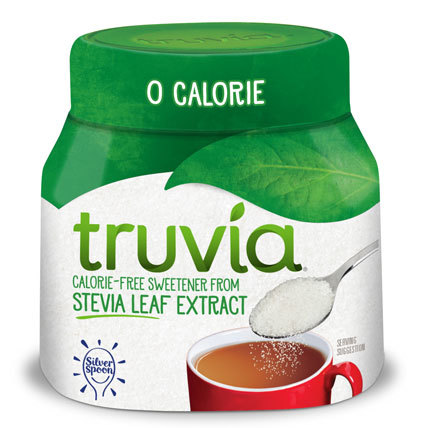Truvia Safety Research and Reports
Any product that has been around for hundreds of years and has the interest of scientists at universities around the world will have decades of research behind it. Stevia leaf extract (steviol glycosides) is backed by volumes of independent research. Global regulatory approvals have been possible because of the rich history of global safety studies and also some modern research.
Truvia: Erythritol Information & Facts
Erythritol is a non-caloric bulking agent and sweetener produced by fermentation. It is found naturally in small amounts in several fruits such as pears, melons, and grapes as well as fermented foods such as wine and cheese.
Erythritol is not broken down by the body, so it cannot provide calories or affect blood sugar. Other sugar alcohols can be broken down by the body to varying degrees. This means that the body can use them for calories. Erythritol is different, it provides zero calories and has zero net carbs.

Is erythritol a safe ingredient in Truvia Calorie-Free Sweetener?
Yes. Erythritol is a natural sugar alcohol that is found naturally in certain foods – it is not an artificial sweetener. Erythritol is not as sweet as sucrose and was carefully chosen as an ingredient in Truvia Calorie-Free Sweetener to balance the intensely sweet flavor of stevia leaf extract and provide a sugar-like texture. Unlike regular table sugar, erythritol is suitable for daily use by diabetics, since it does not increase blood sugar or cause the release of insulin. Like Truvia stevia leaf extract, erythritol is naturally calorie free. Learn more about erythritol’s safety and uses. ›
Are there any side effects to erythritol?
Erythritol produces almost no side effects unless consumed at very high doses on an empty stomach, in which case it may cause slight gastrointestinal discomfort. Erythritol is non-cariogenic and has the highest digestive tolerance compared to other polyol sweeteners. In one study comparing erythritol to sorbitol, a commonly used sugar alcohol, it took 4 times the amount of erythritol to generate looser stools. Since consumption of Truvia Calorie-Free Sweetener is typically in small amounts with food throughout the day, it will not result in gastrointestinal side effects for most people. Learn more about Truvia side effects and gastrointestinal symptoms. ›
 Region
Region
 Australia
Australia
 Brazil
Brazil
 Canada (English)
Canada (English)
 China
China
 España
España
 Israel
Israel
 Italia
Italia
 Middle East (Arabic)
Middle East (Arabic)
 New Zealand
New Zealand
 Philippines
Philippines
 United States
United States
 South Africa
South Africa